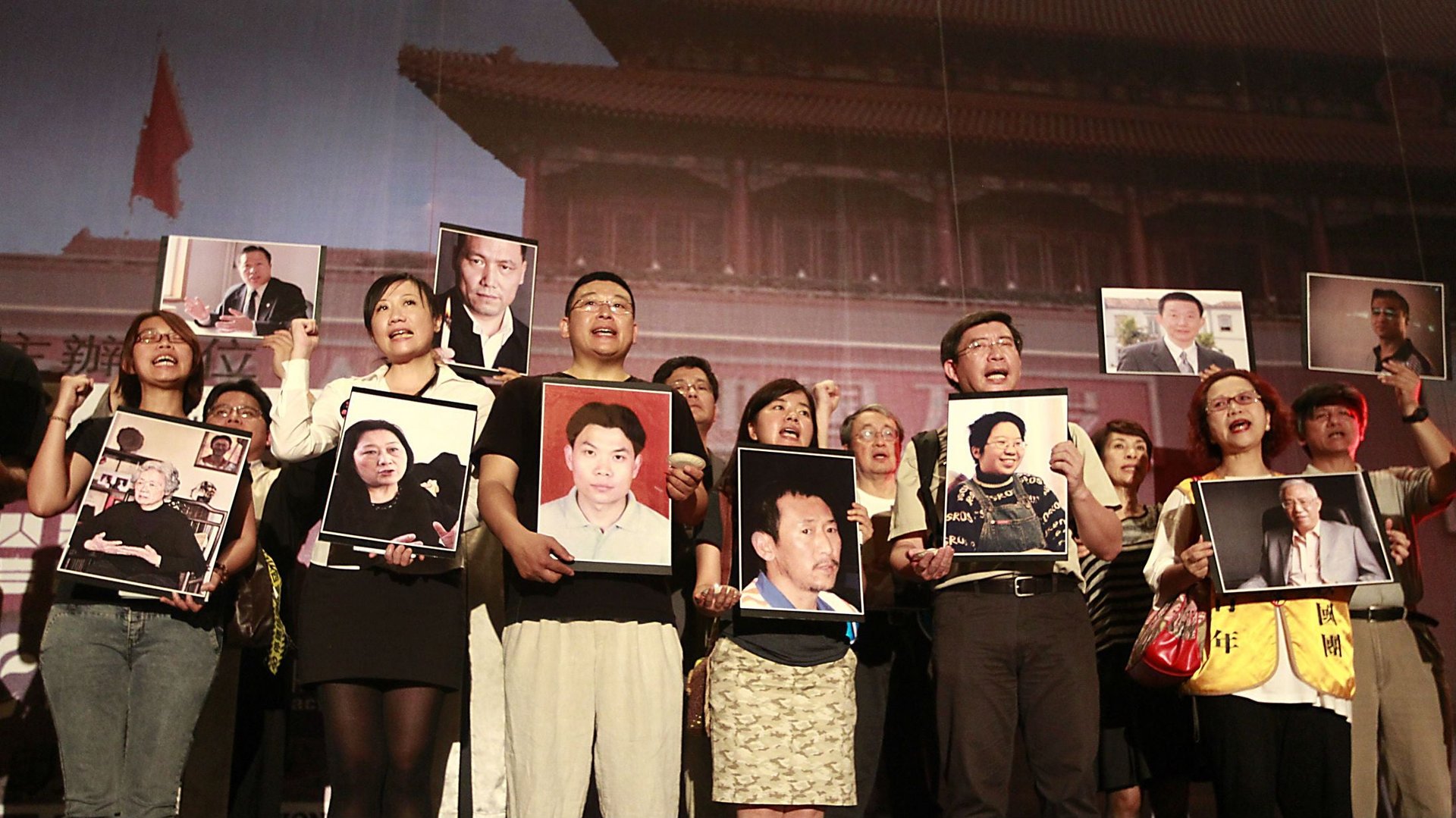China is refusing to give a dozen political prisoners life-saving medical treatment
Chinese activist Liu Ping, connected with the loosely organized New Citizens Movement, was sentenced to six years and six months in prison last week. Human rights groups and Liu’s lawyer argue she should be given medical parole: They claim that over the course of the past year she has spent in detainment, the 49-year-old has grown extremely weak after being beaten and choked and having suffered daily bouts of severe diarrhea, likely caused by the prison’s unsanitary conditions.


Chinese activist Liu Ping, connected with the loosely organized New Citizens Movement, was sentenced to six years and six months in prison last week. Human rights groups and Liu’s lawyer argue she should be given medical parole: They claim that over the course of the past year she has spent in detainment, the 49-year-old has grown extremely weak after being beaten and choked and having suffered daily bouts of severe diarrhea, likely caused by the prison’s unsanitary conditions.
At least 11 other imprisoned Chinese activists are being denied needed medical treatment, according to a list released by the non-profit, Chinese Human Rights Defenders (CHRD) for the United Nations’ International Day in Support for Victims of Torture, which is today. Those include Chen Xi, who is serving a ten-year sentence on charges of inciting state subversion and has chronic enteritis, an infection of the digestive tract, and Wang Kuoma, who has suffered several strokes since being in prison.
In March, Cao Shunli a Chinese activist detained in Beijing died after months of being refused medical treatment for tuberculosis and liver disease. Authorities only took her to the hospital after she slipped into a coma. A Tibetan activist, Goshul Lobsang, also died in March after being refused treatment in prison, according to CHRD.
China has signed international agreements that say prisoners must be given medical treatment and Chinese law includes a provision for giving medical parole. But as China has grown more resistant to international pressure regarding human rights, it has stopped granting medical parole to political prisoners. For years, Beijing released a number of high-profile political prisoners in medical need on the condition that they leave China and go abroad for treatment, but since 2005 zero medical paroles have been granted, according to the US-based human rights group Duihua.